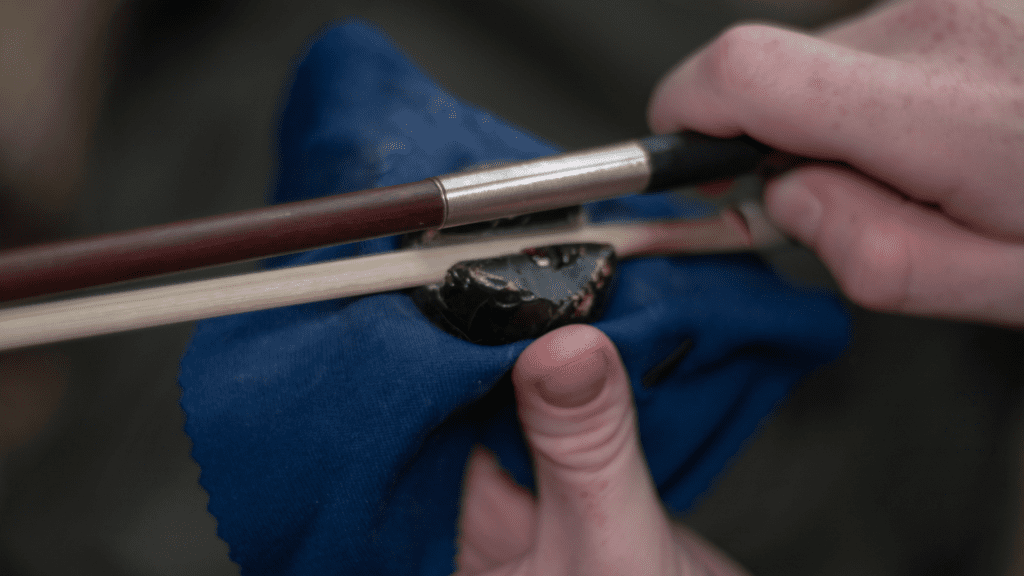Rosining a violin bow is an essential step in maintaining the instrument and ensuring optimal sound quality. The rosin is applied to the bow hair to create friction between the bow and the strings, which allows the player to produce sound. Without rosin, the bow hair would slip on the strings, making it difficult to produce a clear, crisp sound. Additionally, rosining the bow helps to protect the bow hair from wear and tear, prolonging its lifespan. Regular rosining is also necessary to ensure that the bow hair maintains its proper tension, which is essential for producing a good sound. Therefore, it is highly recommended to rosin the violin bow regularly, to ensure the best performance and longevity of the bow and the violin.
How to Rosin A Violin Bow
Here is a step-by-step guide on how to rosin a violin bow-
- Start by acquiring a good quality rosin, ideally one that is formulated for violins.
- Hold the bow in your left hand and the rosin in your right hand.
- Gently press the bow hair against the rosin, using a back-and-forth motion, while applying moderate pressure. Be sure to cover the entire length of the bow hair, paying special attention to the middle and tip of the bow.
- After rosining, use a soft cloth to remove any excess rosin from the bow hair.
- Repeat the process until the bow hair appears evenly coated with rosin. It’s essential not to over-rosin the bow, as this can cause the sound to become harsh and scratchy.
- Store the bow in a dry place, away from direct sunlight and heat, to prevent the rosin from melting and damaging the bow hair.
It’s important to note that the amount and frequency of rosining will depend on the type of bow and the player’s preferences. New bows may require more frequent rosining, while older bows may need less.
Conclusion
In summary, Rosining a violin bow is an essential step in maintaining the instrument and ensuring optimal sound quality. Hold the bow in your left hand and the rosin in your right hand. Gently press the bow hair against the rosin using a back-and-forth motion, while applying moderate pressure. Be sure to cover the entire length of the bow hair, and remove any excess rosin. Repeat the process until the bow hair appears evenly coated with rosin. Store the bow in a dry place for better fitness.
